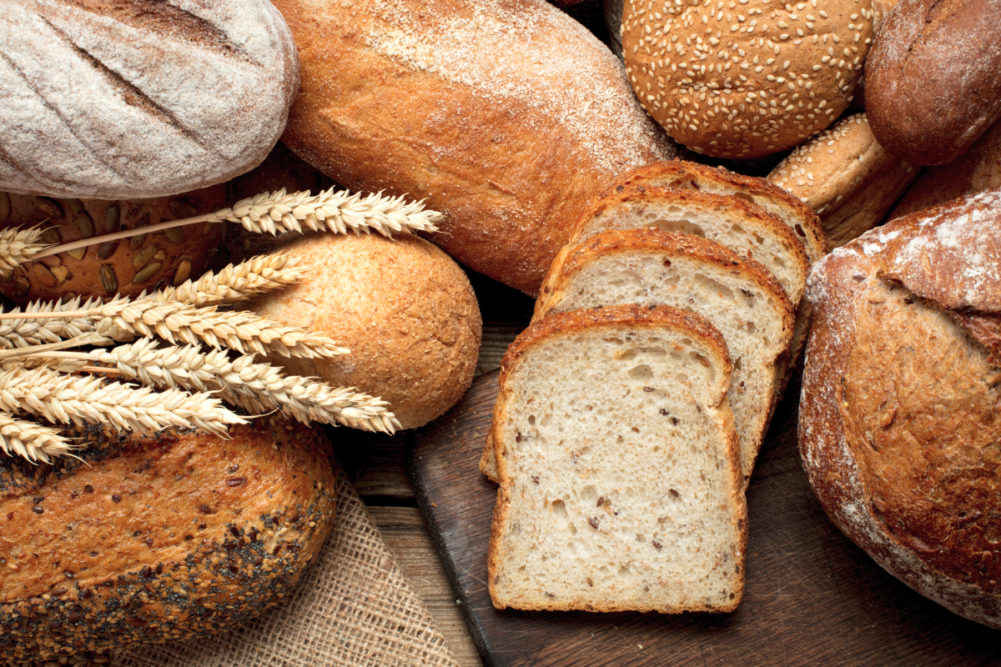WASHINGTON — Whole grains and refined grains both can make meaningful nutrient contributions to dietary patterns and add nutrient density, according to an article appearing in the October 2020 issue of Current Developments in Nutrition.
A scientific panel, which reviewed published data since the release of the Dietary Guidelines for Americans 2015-2020, also found fortification and enrichment of grains remain vital in delivering nutrient adequacy in the American diet, scientific evidence that refined grain foods are linked to overweight and obesity is inconclusive, and gaps exist in the scientific literature on grain foods and health.
The Grain Foods Foundation, Washington, supported the study in part through a grant but had no role in the design of the study or in the collection, analysis or interpretation of the data.
“This study provides clear support to the message of the 2015-2020 DGAs and that of the recently-released 2020-2025 DGAs: Whole and enriched grain foods play an essential role in a healthy diet,” said Dayle Hayes, an award-winning child nutrition expert, registered dietitian and study co-author. “Moreover, it reminds us of the nutrition-related health risks of eliminating or reducing grain foods from diets, at any age, and the need to better convey this message to the public.”
The panel agreed a change should be made to dietary guidance, which currently places all grains that are not whole grains into a refined grains category. The panel pointed out that many enriched grain foods, including ready-to-eat cereal and bread, are labeled as refined grains even though they provide nutrient density. Future research should consider distinguishing different types of refined grain foods with a goal of potentially creating an additional classification of grains that goes beyond whole and refined.
The panel pointed to research involving children showing that without enrichment and fortification practices in place in the United States, they could have inadequate intakes of dietary folate, calcium, and vitamins A, D and E. Researchers agreed that without added nutrients in food, thiamin, riboflavin, vitamin B6 and zinc could be considered shortfall nutrients.
The panel reported that no meta-analyses have been conducted on the association between refined grain intake and measures of body weight or body fat have been conducted and that three systematic reviews found no consistent relation between refined grain intake and body mass index (BMI) or measures of adiposity.
The panel concluded Americans should seek their recommended three servings of whole grains per day while not neglecting three refined grain servings. Fewer than 8% of US adults consume at least the recommended whole grain servings per day, according to the panel.
“The key takeaway of this review is that Americans need to know the many benefits of including both whole grain and refined grain foods in their diets, while also understanding what types of grain foods — what I like to call ‘indulgent grain foods’ — to limit,” said Glenn Gaesser, PhD, co-author of the study and a member of the GFF’s scientific advisory board. “Make-half-your-grains-whole dietary guidance has been based on decades of studies that focus on dietary patterns, rather than specific food groups, but the rare research that does consider different types of refined grains, shows that they are far from being the ‘bad guy.’”
Sylvia Klinger, a registered dietitian and member of the GFF’s Scientific Advisory Board, added, “Make-half-your-grains-whole messaging dominates, and is indeed essential, but it’s worrisome that enriched grain messaging seems to have been lost. Refined grain foods that have been fortified to help to alleviate shortfalls of nutrients, including B vitamins, thiamin, niacin, riboflavin, iron, and folic acid, which has played a huge role in preventing neural tube birth defects. With this in mind, clearer guidance is needed to help Americans include refined grains as part of the recommended six daily servings for the most comprehensive nutritional benefit grains can offer.”





